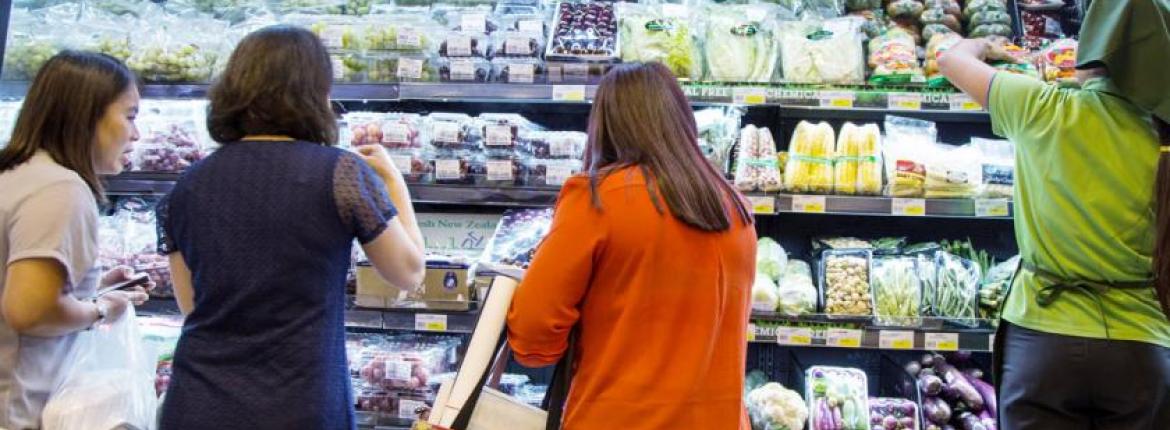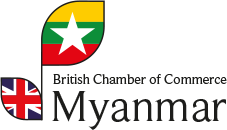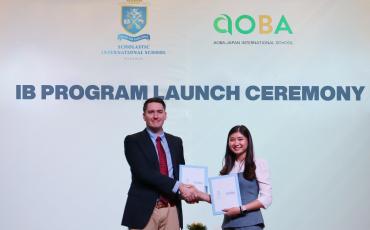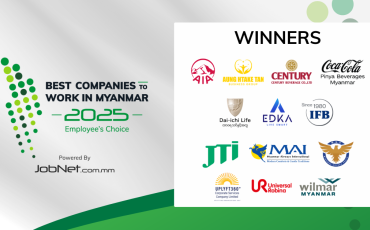
Foreign businesses and joint ventures are now allowed to carry out businesses in the retail and wholesale sector, according to the latest directive from the commerce ministry. Leading business groups hailed the move as a right step towards attracting inwards investments for Myanmar.
Foreign businesses and joint ventures are now allowed to carry out businesses in the retail and wholesale sector, according to the latest directive from the commerce ministry. Leading business groups hailed the move as a right step towards attracting inwards investments for Myanmar.
The ministry issued the Directive 25/2018 on May 9, authorising 100 percent foreign-owned companies as well as joint ventures between international and domestic investors to carry out retail and wholesale businesses. The trade policy is essential for reforming the economy of the country.
The liberalisation measure, the directive explained, was to foster competition in the sector to provide more options, cheaper options and better options for consumers across the country. This will bring in technology and quality products for the sector, facilitate growth of small and medium-sized enterprises (SMEs), attract more foreign investments and create jobs. It will also help “prevent unfair competitions among the distributors, who are exploiting the consumers.”
Key points
The new measure allows retail and wholesale trading of all types of commodities which are domestically manufactured or imported from abroad, except those prohibited by law. Domestic companies, foreign firms and joint ventures are all permitted to operate.
Retail and wholesale trade can be conducted in any townships in all states and regions, based on relevant regulations.
However, foreign businesses and JVs are not allowed to operate mini-markets, convenience stores and any retail distribution where the floor area is smaller than 929m2.
All kinds of companies in the trading business must pay import and distribution taxes.
Minimum capital
The minimum capital requirements for 100pc foreign-owned firms to operate in retail and wholesale industries are US$3 million and $5 million respectively.
For joint ventures where the local investor has at least 20pc equity ratio, the minimum capital necessary for retail and wholesale are $700,000 and $2 million respectively. Otherwise, the JV will be regulated by the requirement for 100pc foreign-owned companies.
All capital requirements exclude rental fees.
Domestic businesses are exempted from the requirements.
Registration
All companies must apply to the commerce ministry to register their business in this sector, with the exception of 100pc domestically-owned companies which has a capital of less than $700,000. The latter are exempted from registration.
Necessary documents include the company’s registration, approval from the Myanmar Investment Commission, approval from the corresponding township or regional development committee, list detailing the products which will be sold and distributed, business plans and investment amount.
Existing domestic companies in operation with an initial investment of $700,000 or above need to register with the ministry within 150 days from May 9.
Registered entities need to notify the ministry of any new branch openings within 90 days prior to the expansion.
Attracting inward investments
Chloe Taylor, chief executive of the British Chamber of Commerce Myanmar, said that British retailers looking to expand in Myanmar will be encouraged by the policy.
“The British Chamber of Commerce welcomes the recent announcements opening up opportunities for foreign investment in retail and wholesale. The Chamber, through its trade and business services, recently introduced a reputable British brand to an established local Myanmar company in pursuing a joint partnership on developing their brand in Myanmar.
“This announcement will help to attract high-quality UK brands to invest in Myanmar,” she commented, adding that the UK’s retail industry is vital to its economy with well-known British brands, such as the Arcadia Group, which is responsible for Topshop and Miss Selfridges, Marks and Spencer, John Lewis and H&M.
The European chamber also applauded the measure.
“I welcome this change and it sends a positive signal to European investors looking at the enormous opportunities this regulatory reform will create. It will invite more competition to bring down consumer prizes and create more jobs for everyone,” Filip Lauwerysen, executive director of European Chamber of Commerce in Myanmar, remarked.
U Aung Thein, chair of Myanmar Industry Association, noted that, with more foreign players entering the market, competition will intensify and local businesses need to be ready for that.
Prior to this directive, the ministry had previously opened up trade in fertilisers, seeds, pesticides, hospital equipment and construction materials for international businesses, according to Kelvin Chia Yangon Ltd.



